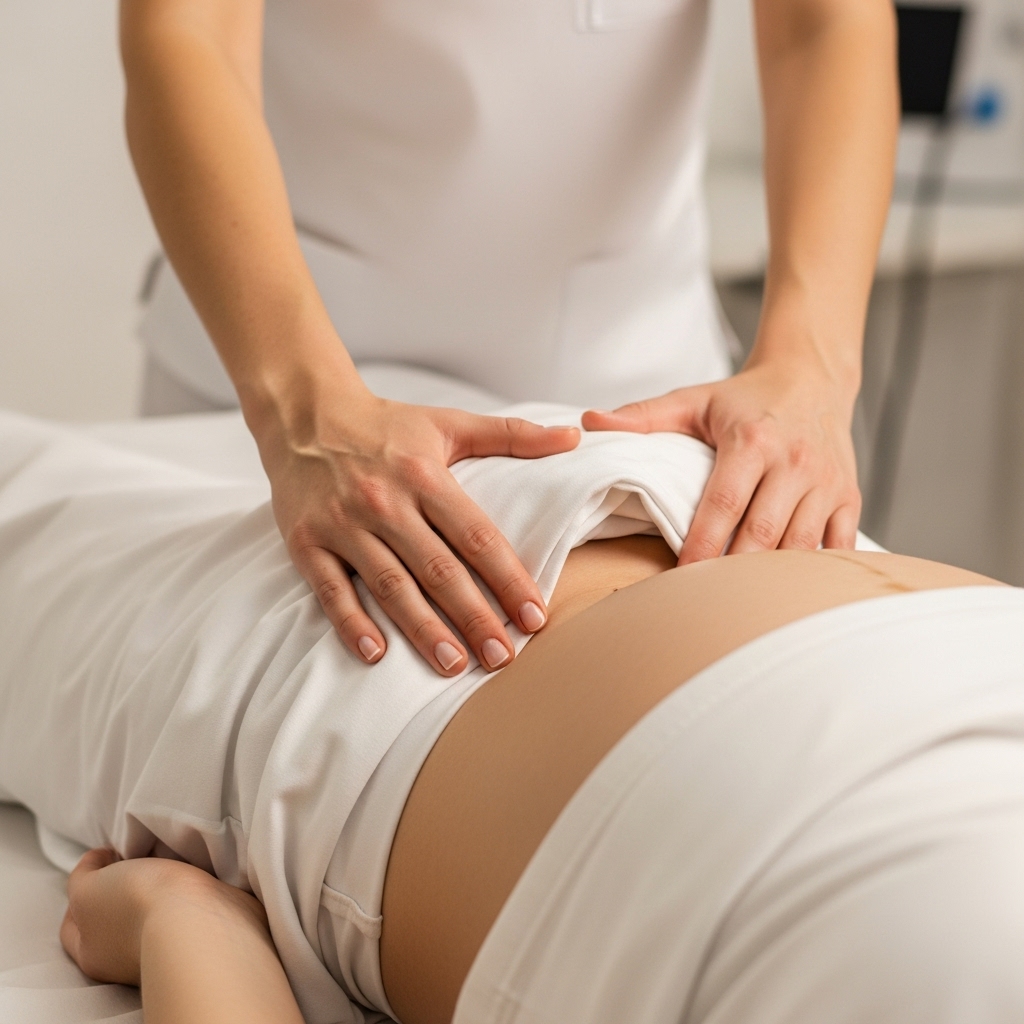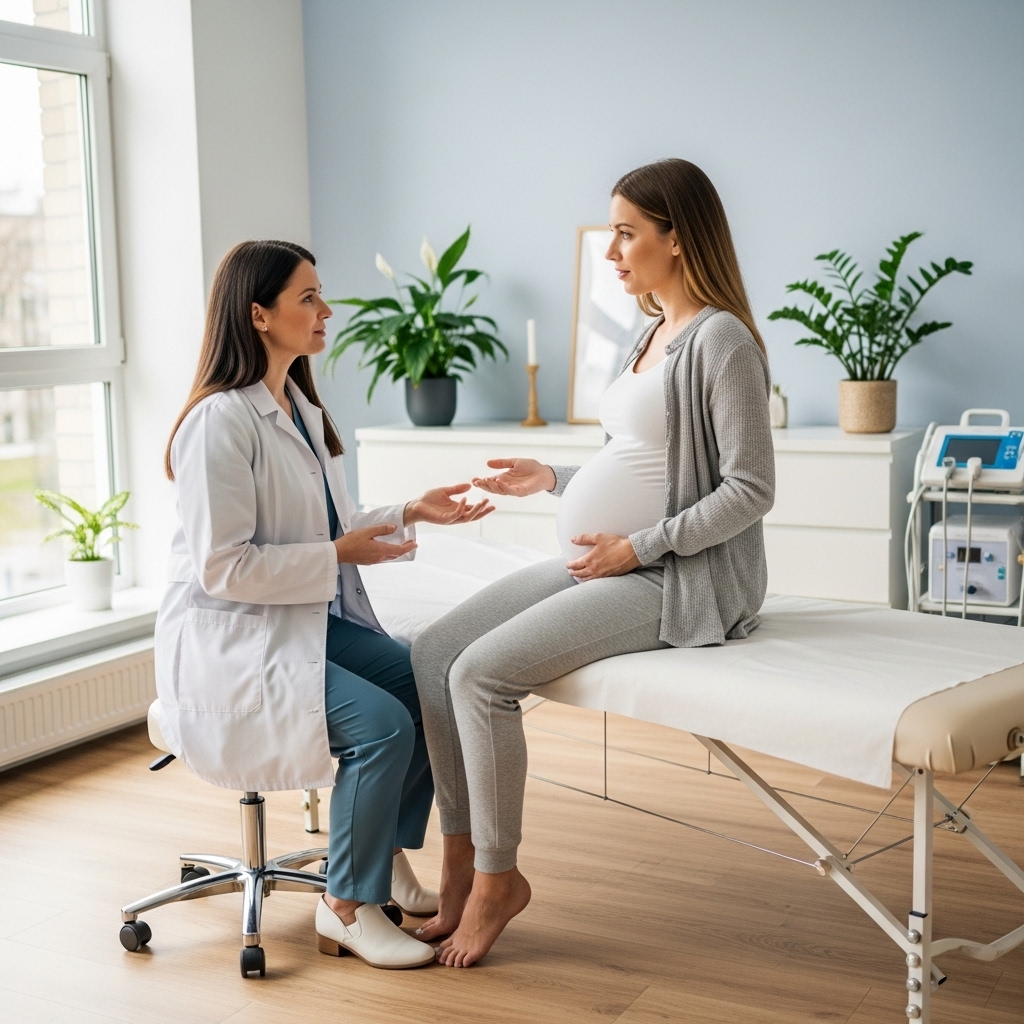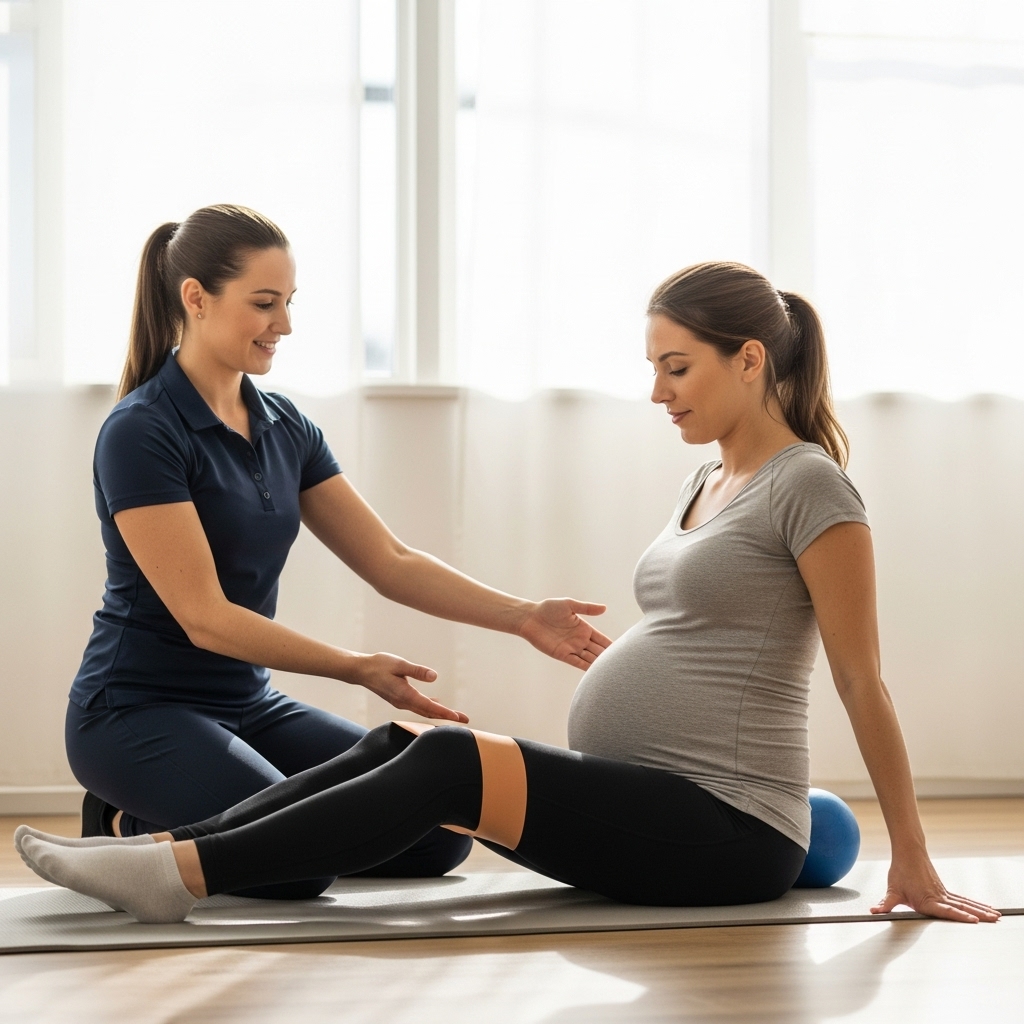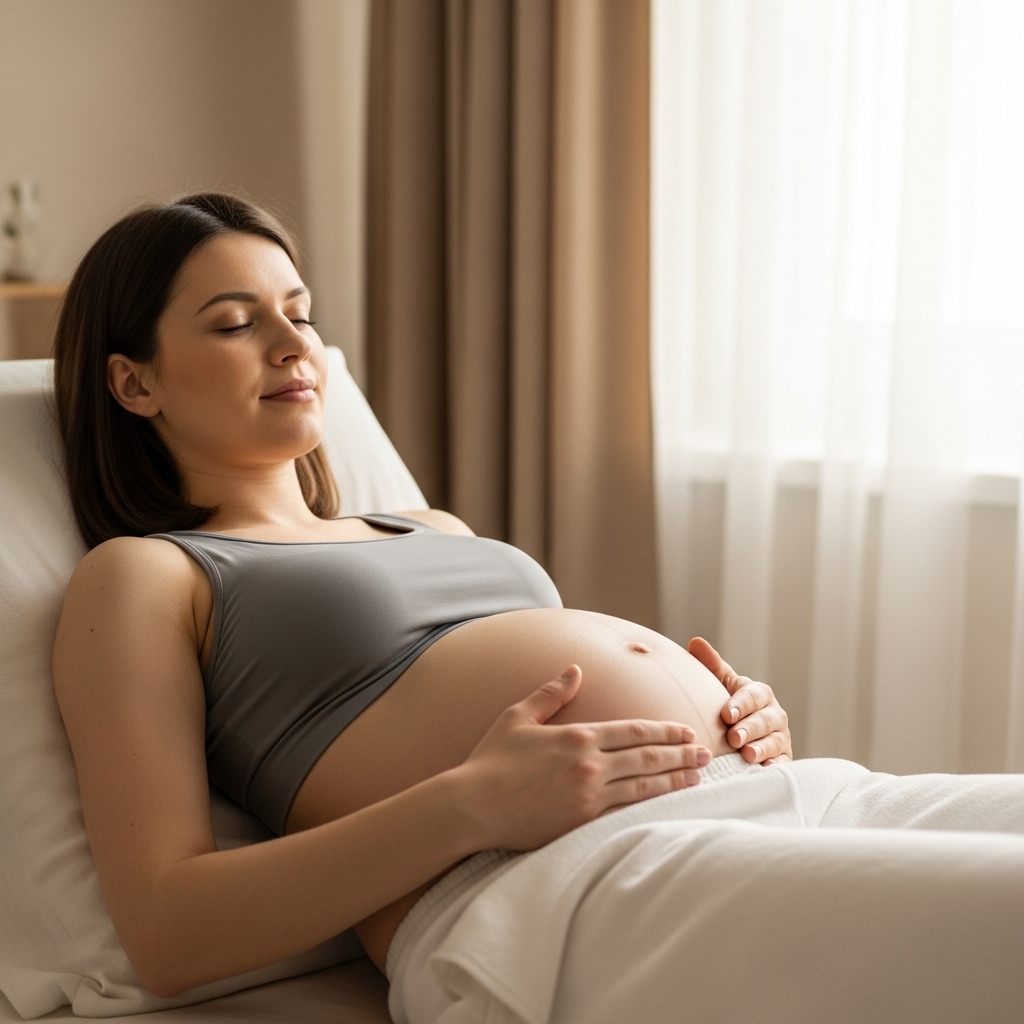Subtotal $0.00
Shopping cart
- 01908690544
- Warren Bank Simpson Milton Keynes MK6 3AQ


At our Advanced Pain Relief Clinic in Milton Keynes, we specialise in treating pregnancy and pubic pain with safe and gentle methods. Our experienced therapists provide tailored care to ease discomfort, support your posture, and help you move comfortably throughout pregnancy.
If you’re pregnant and experiencing a constant ache, sharp twinges, or a sense of instability around the front of your pelvis or pubic bone—you’re not imagining it. Many expectant mums feel this type of discomfort as their body adapts. What’s important is to understand what’s happening and how you can find support and relief.

In pregnancy, your body changes a lot to make room for baby—and part of that involves your pelvis. A key joint at the front of your pelvis, called the Symphysis Pubis Dysfunction (SPD) or more broadly Pelvic Girdle Pain (PGP), may become painful or unstable.
Hormones like Relaxin soften ligaments so your pelvis can widen for birth; that loosening is helpful—and sometimes over‑helpful.
Added weight and changes in movement or posture place more strain on your pelvis and pubic area.
You might experience discomfort when walking, climbing stairs, turning in bed, or getting in and out of a car.
Importantly: this pain is not harmful to your baby, but it can interfere with your comfort, movement and quality of life.
Our approach is centred on making your pregnancy more comfortable and giving you tools for movement, posture and relief. Here’s how we’ll support you:
We’ll review your pregnancy history, when and where the pain shows up, how it affects your daily routine and posture.
Using manual therapy (soft‑tissue work, joint mobilisation), advice on how to move safely, and strategies to stabilise the front pelvis and pubic joint.
Guidance on posture, how to stand or walk safely, when to use a support belt or pillow, and movement modifications (especially for stairs, getting up, car entry/exit).
Helping you reduce flare‑ups today and support your pelvis after birth so things don’t linger.

What you can do now:
Avoid standing on one leg (e.g., getting dressed) or spreading your legs too wide (getting in/out of car) when possible.
Use a pillow between your knees when sleeping on your side.
Wear supportive shoes and use slow, deliberate movements rather than sudden twisting or bending.
Reach out if:
The pain stops you from doing everyday tasks (walking, stairs)
You feel instability or a “clicking” in the front pelvis
The pain doesn’t ease with rest and simple adjustments
Letting front‑pelvis pain persist without support can lead to:
Increased discomfort and limiting of activity (which is the opposite of what you want in pregnancy)
Compensation by other parts of your body (hips, back) that may create new painPost‑partum recovery that takes longer because the pelvis hasn’t had support
Post‑partum recovery that takes longer because the pelvis hasn’t had support.
By taking steps now, you improve your chance of staying more mobile, comfortable, and feeling more in control during your pregnancyand beyond.

4.9 (150 Reviews)

We offer flexible timings to suit your schedule. Financial or counseling support may be available for those in need.
We specialise in a wide range of pain and musculoskeletal issues, including lower back pain (acute, sub-acute & chronic), migraines and cervicogenic headaches, cervicogenic dizziness, heel pain/plantar fasciitis, tennis elbow and other minor sports injuries, shoulder/joint pain, sciatica.
Our clinic offers chiropractic spinal manipulation and mobilisation, Traditional Chinese Medicine (including acupuncture and herbal medicine), craniosacral therapy (and sacro-occipital technique), sports massage and related therapies.
On your first visit you will have a consultation to discuss your condition and health history, and then a treatment session (often around 40 minutes) if time allows. Follow-up sessions are shorter (20–30 minutes).
New consultation + treatment (40 min) – £65. advancedpainreliefclinicmk.co.uk
Follow‐up treatments (20 min) – £49; (30 min) – £55. advancedpainreliefclinicmk.co.uk
TCM consultation (60 min) – £65; follow-up (30 min) – £50. advancedpainreliefclinicmk.co.uk
Note: These prices are as published — it’s good to check for any changes or package deals.
We are based at Warren Bank House, Simpson – Milton Keynes, MK6 3AQ. advancedpainreliefclinicmk.co.uk
You can call us on 01908 690544, or use our online booking link “Book Now” via the Cliniko platform. advancedpainreliefclinicmk.co.uk